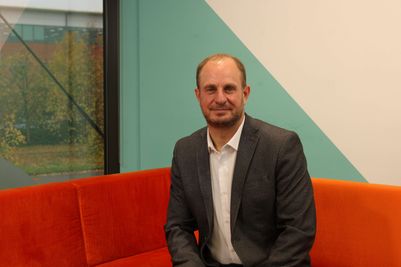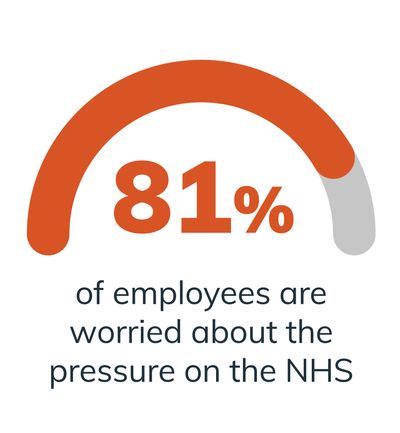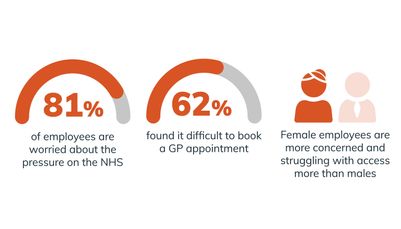62% of UK employees struggle to get a doctor’s appointment
Published:
Read Time: 3 mins
Almost two-thirds of UK employees find it difficult to book a doctor’s appointment and have self-treated due to a lack of access to healthcare, a new study reveals.
The alarming statistics were revealed by the Britain At Work report published by Health Shield Friendly Society.
They paint a worrying picture of how people across the country are suffering due to pressures on the NHS, which continue to cause concern five years on from the pandemic.
The findings reveal:
• 81% are worried about pressure on the NHS – and 21% very worried
• 62% find it difficult to get a doctor’s appointment
• 54% find it difficult to get an NHS dentist appointment
• 53% of women report difficulty accessing healthcare
• 47% have self-treated – rising to 59% for women
• 47% who needed dental care found it difficult to pay for it
• 41% have suffered due to lack of access to healthcare
Paul Shires, director at Health Shield said: “These stark figures show that access to NHS services has become a struggle for many employees, with delays often forcing individuals to manage their health independently.
“It’s not clear exactly how people are self-treating. For some it may simply be a visit the pharmacist or choosing an over-the-counter solution. For others it may be a bigger concern, but it’s a trend that should be watched closely.
“Overall, these results reveal not just a national issue but a workplace challenge, as employee anxiety about healthcare access can impact both morale and performance.
“Although anxiety about the NHS has slightly decreased from 88% in 2023 in our last report to 81% now, the figures remain high.”
Lack of access to healthcare and anxiety about the NHS appears to impact some groups more than others, with women suffering more than men in most categories.
• 84% of women are worried about NHS pressures compared to 77% of men.
• 24% of women are very worried, compared to 18% of men.
• 66% of female employees find it difficult to get a doctor’s appointment compared to 58% of men.
• 59% of female employees are self-treating due to a lack of access to healthcare compared to 39% of men
• 61% of female employees have found it difficult to get an NHS dentist appointment compared to 48% of males
The most pronounced challenges, however, are reported by Millennials, who are most likely to:
• Struggle to book a GP appointment, 65%
• Resort to self-treatment, 49%
• Suffer due to lack of healthcare, 49%
Paul Shires added: “This should be a wake-up call for employers that their people across all age groups are struggling with access to healthcare – and that is going to impact the workplace.
“The Britain At Work Report also showed that employees took seven days off last year due to health-related issues. Of those, 47% were due to general ill health and 29% linked to mental health challenges such as stress or anxiety. It’s an issue that cannot be ignored.”
Perry Timms, an HR influencer who is founder and chief energy officer of PTHR, said: “Access to healthcare is no longer just a public issue - it’s a workplace imperative. This report outlines the challenges employees face navigating delayed care and the widening gender and generational disparities.
“The call to action is clear: employers must lead with empathy, act with evidence, and build new practices that prioritise health as a strategic asset. The future of work is one where wellbeing isn’t a bolt-on - it’s baked in.”
For more information visit: https://www.healthshield.co.uk/
Ends
Editors notes
About Health Shield Friendly Society
Health Shield is an award-winning friendly society, dedicated to helping businesses stay in the best of health by providing employee health benefits. Founded in 1877 to support the health of railway workers, today the not-for-profit mutual provides employee health benefits to businesses across the UK, covering more than 500,000 people. Its award-winning product offering includes health cash plans and health screening services designed for prevention and early intervention.
For more information visit: https://www.healthshield.co.uk/




